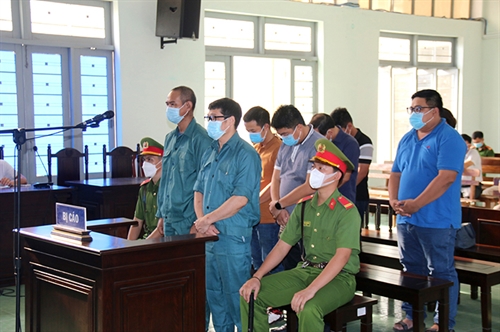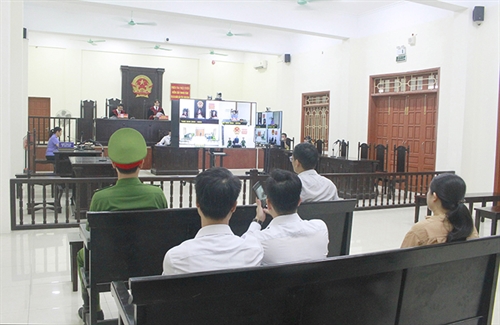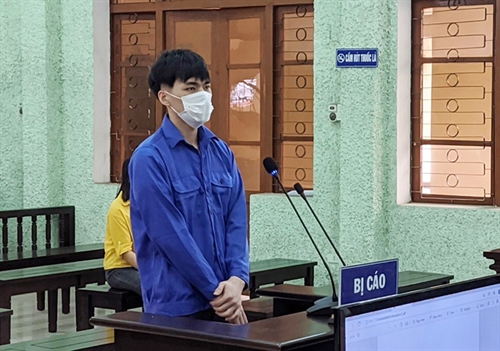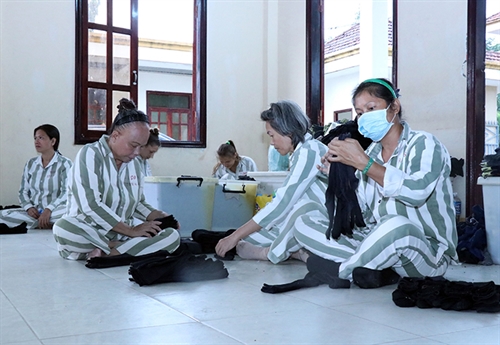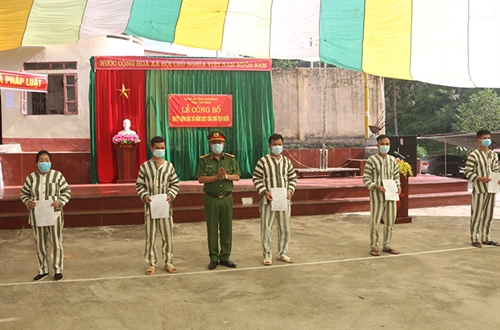By exercising their right to initiate lawsuits, shareholders of joint-stock companies become able to protect their own rights and interests against infringements of their companies and corporate managers. However, current relevant regulations still see limitations regarding the shareholder litigation right. This article analyzes such limitations and dwells upon how to better facilitate the proper exercise of this right.
Nguyen Phuong Thao, LL.D.
Law Faculty, Banking Academy of Vietnam
The right of shareholders to initiate lawsuits
Shareholders are regarded as the real owners of joint-stock companies (JSCs). However, due to the separation between ownership right and management/governance right, shareholders usually do not personally participate in the management and governance of their companies. The right to manage JSCs is vested with the management bodies (Shareholders’ General Meeting and Board of Directors) and individual managers (Chairperson of the Board of Directors, Directors and Executive Officers, etc.) to carry out day-to-day operations of JSCs for their best interest. However, in reality, not always do JSC shareholders agree with decisions of the management bodies or individual managers, particularly in case such decisions might badly affect shareholders’ interests. That’s why there must be a mechanism for shareholders to put some pressure on corporate managers in order to protect interests of their own and of their companies.
There are two types of the right of shareholders to initiate lawsuits, including the right to initiate lawsuits in their personal capacity or on behalf of a group of shareholders and the right to initiate lawsuits on behalf of their companies. The first type of right aims to guarantee shareholders’ exercise of rights stemming from the shareholding, i.e., the voting right, the right to access various documents of JSCs, and the right to request annulment of decisions of the Shareholders’ General Meeting or Board of Directors when deeming that such decisions infringe upon their lawful rights and interests. The second type of right may be exercised when investment capital of shareholders is lost due to damage caused by staffs or members of the Board of Directors or Directors of the companies (corporate managers) who breach their obligations. This type of lawsuit is known as shareholder derivative suit. To initiate a derivative suit, shareholders must: (i) be shareholders of the JSC at the time of occurrence of the event subject to the lawsuit and hold their valid shareholder status throughout the course of lawsuit settlement; (ii) fairly and adequately represent interests of shareholders in exercising the right of the JSC; and (iii) have filed a demand on the JSC before initiating a lawsuit (e.g., demanding the JSC take action but the company refuses to do so).
 |
| The 2022 General Shareholders’ Meeting of Vietcombank in Hanoi on April 29__Photo: Tran Viet/VNA |
Enterprise Law’s provisions on the right to initiate lawsuits and limitations in application
The right of shareholders to initiate lawsuits was first recognized in the 2005 Enterprise Law and has been developed to date. Under the 2020 Enterprise Law (the Law), this right may be exercised in two cases: firstly, to initiate a lawsuit to request annulment or termination of implementation of a resolution of the Shareholders’ General Meeting which contravenes law or the company charter[1]; and secondly, to initiate a lawsuit against a corporate manager when having a ground to believe that such manager has breached his obligations and responsibilities[2].
In the first case in which a law-contravening resolution of the Shareholders’ General Meeting is deemed to cause damage to the JSC and shareholders, the right to request annulment or termination of the implementation of such resolution in certain cases is an effective tool to help protect interests of shareholders[3], regardless of the shareholding duration of shareholders exercising such right. Compared to the 2014 Enterprise Law, the Law makes many improvements regarding the right to initiate lawsuits in order to expand the rights of shareholders, thus better helping them exercise their rights and protect their interests against infringements.
However, it is a need to consider abolishing the requirement that a shareholder must hold at least 5 percent of the total common shares for exercising the right to request the court or arbitration to annul the whole or part of a resolution of the Shareholders’ General Meeting. This aims to best protect interests of shareholders, particularly minority shareholders, against infringements of corporate managers.
In the second case, shareholders may initiate lawsuits in their own capacity or on behalf of the JSC against corporate managers (derivative suits) when deeming that the latter fail to properly fulfill their obligations and responsibilities, thus causing damage to the JSC or third parties. The 2014 Enterprise Law and the Law both set the requirement on the minimum holding rate of 1 percent of the total common shares for shareholders wishing to initiate derivative suits. In reality, shareholders with bad intention in initiating lawsuits might have sought support from other shareholders to meet such requirement, making it insignificant in preventing mala fide lawsuit initiation. The thing that truly matters is whether or not corporate managers have committed violations infringing upon shareholder interests. That the Law abolishes only the requirement on the minimum shareholding duration of six consecutive months by the time of lawsuit initiation and retains the requirement on the holding rate of 1 percent is not in conformity with the common corporate law practice around the world[4].
Regarding legal costs for lawsuit initiation, Article 166.2 of the Law provides: “Legal costs in case a shareholder or a group of shareholders initiate(s) a lawsuit on behalf of the company shall be included in the company’s expenses, except cases in which the lawsuit is rejected.” This provision somehow makes it difficult for shareholders in initiating and following lawsuits, even in case such lawsuits aim to protect interests of the company itself.
Though Vietnam’s enterprise law already has specific provisions on shareholders’ right to initiate lawsuits to request annulment of decisions of the Shareholders’ General Meeting or initiate lawsuits against corporate managers, in reality, the number of shareholder lawsuits accepted and settled by courts over the recent years remains modest[5]. This is attributable to the fact that usually lawsuit-initiating shareholders can hardly get access to information, books, papers and contracts of JSCs and resolutions of the Shareholders’ General Meeting and Board of Directors which can be used to support their lawsuit petitions, and they are financially incapable to pay legal costs (advanced court fees and legal counseling expenses) for lawsuit initiation and settlement.
Recommendations
Firstly, the current requirement on the minimum holding rate of 5 percent of the total common shares is still fairly high, especially for minority shareholders whose interests are possibly infringed upon by resolutions of the Shareholders’ General Meeting. Upon revising the Law, legislators should consider lowering the minimum holding rate of lawsuit-initiating shareholders or even abolish this requirement. Whenever a shareholder acquires an evidence to support his lawsuit initiation petition, he should be allowed to initiate such lawsuit regardless of how many shares he holds.
Secondly, for shareholder derivative suits, the Law should also remove the current requirement on the minimum holding rate of 1 percent of the total common shares to make the domestic enterprise law conform to international practice.
Thirdly, it is suggested to revise the Law’s provisions on legal costs for initiation of lawsuits against corporate managers by shareholders on behalf of the company. Accordingly, Article 166.2 should be amended into: “… Legal costs in case a shareholder or a group of shareholders initiate(s) a lawsuit on behalf of the company shall be included in the company’s expenses”, i.e., removing the phrase “except cases in which the lawsuit is rejected”.
Fourthly, the provisions on capacity to initiate lawsuits of shareholders on behalf of the company should be improved. Specifically, the 2015 Civil Procedure Code should additionally specify the case of shareholder derivative suit as a case of civil lawsuit initiation in order to protect lawful rights and interests of other parties. At the same time, competent agencies should provide specific guidance on this provision as soon as possible to enable shareholders to conveniently exercise this right in reality.
As real owners of JSCs, shareholders should have their lawful rights and interests best protected. Such protection can be practiced through two mechanisms: (i) all subjects of the company properly and fully perform their obligations, and (ii) shareholders initiate lawsuits to request annulment of resolutions of the Shareholders’ General Meeting or Board of Directors which infringe upon their interests or initiate lawsuits against corporate managers who commit violations.-
[1] Articles 151 and 153.4 of the Law.[2] Article 166 of the Law.[3] Under Article 147 of the 2014 Enterprise Law, a shareholder or a group of shareholders holding 10 percent or more of total common shares for at least six consecutive months or a smaller rate as stated in the company charter may request the court or arbitration to annul a resolution of the Shareholders’ General Meeting. Meanwhile, under Article 151 of the Law, the holding rate for a shareholder to initiate a lawsuit is reduced to 5 percent and the requirement on shareholding duration is abolished. For termination of the implementation of resolutions of the Board of Directors, the requirement on shareholding duration (of at least one year) is also abolished under Article 153.4 of the Law. [4] The laws of many developed countries, such as Japan, the US and Germany, only require shareholders with derivative suit intention to hold shares of the company by the time of lawsuit initiation and throughout the settlement of the lawsuit.[5] As reported by the Supreme People’s Court on its Portal, from 2017 to August 2022, there have been only three cases of shareholder lawsuits against corporate managers and 62 cases of shareholder lawsuits to request annulment of resolutions of the Shareholders’ General Meeting.
